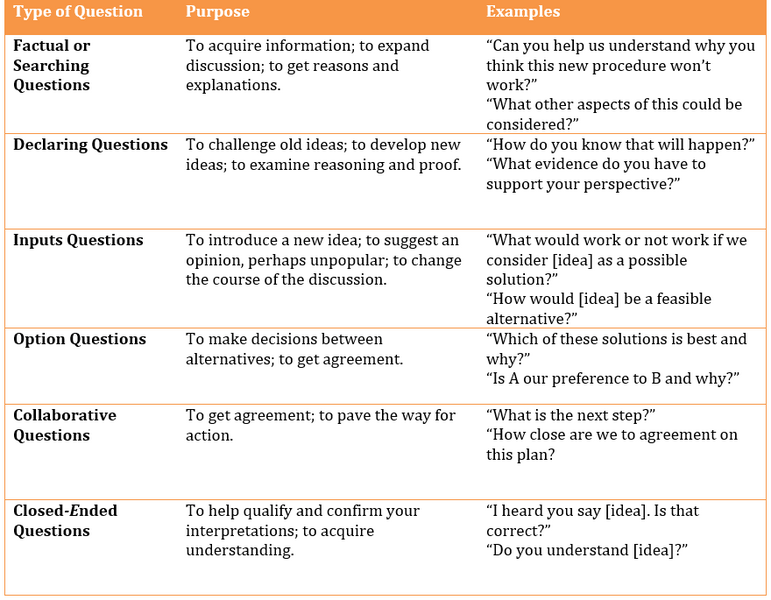ATD Blog
Run Interference For
Thu Apr 06 2017

Interrupt and voice your opinion often, tell others how they should feel, do not listen, do not ask many questions, repeat yourself, and add a few unrelated comments. This list describes how not to promote discussion.
An effective facilitator of an interactive meeting is aware of making absolute assumptions like “What’s bothering you?” versus “You seem to be bothered by what I just said. Are you?” Stay neutral as you facilitate, keeping your opinion to a minimum, and monitor advocating your point of view. When you do give your insights, let the group know you are moving out of facilitator role for a moment because your main focus is running the meeting.
In the meeting, avoid instructing your participants on how they should feel one way or the other about problem solving or decision making. Use the “stop action” technique to help resolve any differences.
Pull information from members by being directive. For example, you could say, “Talk more about that,” “Give me your ideas on \[topic\],” or “Let me see if I understand your point.”
A good facilitator is one who will ask someone to periodically summarize the major points of the discussion before going any further to avoid message overload or any confusion. Suggesting a break is a good idea to recharge your meeting participants.
Asking pre-meeting questions related to the topic is a good way to get people involved. Sample questions include “What are your expectations for this meeting?” and “How does the meeting topic relate to you and your job?”
Also, ask a variety of questions during your meeting. The table below offers some different types, their purpose, and examples.

In this case, the term run interference for means moving in such a way that you protect your meeting from distraction or annoyance. Go get ’em!
